The Acme Made Charge case for iPhone 6 [Review]
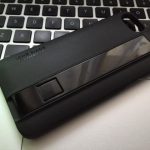
I have never used a case with any of my smartphones. When the back is all plastic and there is no metal in sight, the added width and thickness that a case adds is not something that I can justify just to cover some superficial scratches that are not off-color. But then I got an iPhone 6.
With nothing but metal surrounding the 4.7-inch display, I soon had a feeling I would be getting a case after all. On iPhone 6, scratches would look terrible, especially on my Space Gray model. I haven't found it to be as slippery as my colleague Joe Wilcox has, but this has also been of concern, more so than with any of my previous smartphones. Enter Acme Made Charge for iPhone 6.
Apple's core is rotting
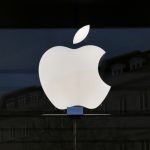
I should read Harvard Business Review more often. There, Juan Pablo Vazquez Sampere offers insightful and fresh perspective in post: "We Shouldn’t Be Dazzled by Apple’s Earnings Report". Of course, I would agree, having written something similar in past BetaNews posts. Point is the same, just the context changed. I lack his prestige and venue, and that's okay. The observations we both make aren't rocket science, or shouldn't be.
Simply stated: Atop the pinnacle of success, Apple stands at the precipice of failure. The scrappy innovator is gone, replaced by the, ah, Establishment cofounder Steve Jobs and his renegades challenged with years of guerrilla tactics. Apple has in this decade achieved huge success. But managing success is challenging, if your business model is innovation. The two objectives often work cross-purposes.
iOS outsells Android in US for the first time since 2012
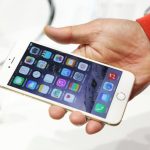
The latest figures published by Kantar Worldpanel show that US sales of iOS devices are outpacing those of Android handsets. Just. Buoyed by the launch of the iPhone 6 and iPhone 6 Plus, Apple saw sales figures rising across Europe, the US and in China, with the smaller of its two smartphones proving to be the best-selling handset in the US.
Overall, iOS devices accounted for 47.7 percent of smartphone sales, just managing to edge ahead of Android which dropped slightly to a 47.6 percent market share. The holiday period was key to this switch in popularity, as the iPhone 6 proved the most popular gift in 2014. But it's not just in the US that Android is losing its grip on the market.
Smartphones: Apple ties with Samsung, Android still growing, Windows Phone still failing
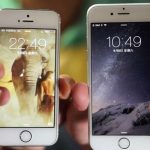
Samsung is no longer the leading smartphone vendor. According to a new report from Strategy Analytics, Apple caught up with the South Korean maker in Q4 2014, thanks to a record number of iPhone shipments totaling 74.5 million units. The two players now share the top spot on the podium.
How did it come to this? Well, it's simple. Apple's shipments increased from 51 million units by 46.07 percent year-over-year, while Samsung's shipments decreased from 86 million units by 13.37 percent, each converging to 19.6 percent market share. Thanks to the strong performance shown by iPhones, iOS' market share rose also, to 19.6 percent from 17.6 percent a year prior, while Android's market share dipped slightly to 76.7 percent from 78.3 percent.
Xiaomi: Hand over your iPhone, get a Mi Note flagship for free
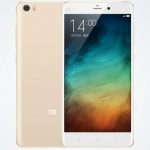
Xiaomi is going hard against Apple in 2015. CEO Lei Jun recently gave several shoutouts to the Apple's inferior design quality on the iPhone 6 when compared to the Mi Note.
And now the next step in the battle will focus on swapping iPhones for Xiaomi Mi Note and Mi Note Pro at no extra cost, according to a new report citing Xiaomi's media development director.
Xiaomi reveals its iPhone 6 Plus competitors

Chinese maker Xiaomi is going after iPhone 6 Plus with two new premium phablets unveiled today at a special event in Beijing. Called Mi Note and Mi Note Pro, the two Android handsets feature high-end hardware and, in typical Xiaomi fashion, lower price-tags than their Apple-made rival.
Xiaomi is calling both devices a flagship, although, judging by the specs alone, Mi Note Pro is clearly more deserving of the title, as it features the latest-available technologies. It is also better equipped to take on iPhone 6 Plus, which has proven to be quite successful for a phablet.
Samsung's new A7 smartphone is big, fast and thin
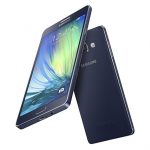
Samsung has long been criticized for making smartphones that look and feel cheap. This has not only been the case with its low-cost offerings, but also with its mid-rangers and flagships -- you don't need to look further than the Galaxy S line -- which is supposed to be Samsung's cream of the crop in regards to design -- to understand the problem.
Fortunately, Samsung has paid attention lately, proof being the introduction of the A lineup as well as the design changes made for the Galaxy Note 4 flagship, which will trickle down to future premium offerings. And, today, Samsung is expanding the A lineup by adding the A7 phablet into the mix. It is the biggest, most powerful and thinnest of the bunch.
Mophie Juice Packs power your iPhone 6 or iPhone 6 Plus for longer
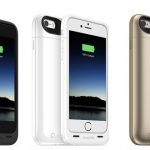
Power -- or running out of it -- is a perennial problem for mobile phone users. As handset screens grow and processors become more powerful, the demand placed on batteries is constantly increasing. It's quite common to hear people complaining that their phone won't last the day without needing a recharge.
Something of a cottage industry has sprung up in third party batteries and charging cases. One name that has been around for some time is Mophie, and at CES 2015 the company took the wraps off three new power cases; two for iPhone 6 and one for iPhone 6 Plus.
Apple now sells SIM-free, unlocked iPhone 6, 6 Plus -- be careful which model you buy
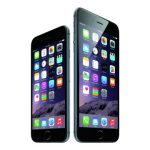
Apple is now finally selling SIM-free, unlocked iPhone 6 and iPhone 6 Plus through its online and brick and mortar stores. The new models, which come nearly four months after the two devices launched, are available in all storage configurations, starting at $649 and $749, respectively.
Apple makes things slightly complicated for those looking to purchase an unlocked iPhone 6 or iPhone 6 Plus, as the company is advertising two "Unlocked and contract-free" models, for each of the two devices, on its site. The model that is available starting today is labeled "SIM-free", while the other one bears T-Mobile's logo. Be careful which one you buy, if you plan on using it in US or abroad.
THIS is what it takes to protect your iPhone from breaking
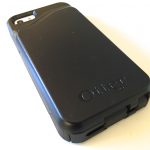
Do you remember the old Nokia bricks—even the Finnish manufacturer's early smartphones? They were tanks. They were the Arnold Schwarzeneggers of mobiles—handsome and rugged. Then along came iPhone, and beauty bested brawn. Eight years after Apple cofounder Steve Jobs showed off the first prototype during January Macworld, design ethics applied to the original curse millions of iPhone owners today. The mobile is too destructible.
In July 2014, I wrote about my 20 year-old daughter's breakage streak: Three shattered iPhone 5s screens in about three months. The photo you see, taken on Christmas Day, is what her newest replacement looks like today. What's wrong with this picture? Need I even ask? The mobile's delicate design features are lost in protective gear that shouldn't be necessary. iPhone is flawed by design.
That iPhone 6 storage lawsuit is so bogus I just laugh

Oh the irony! I got up yesterday morning planning to write a version of the post you read now, choosing instead to look back at readers' life-changing tech. The trigger: Motorola starting the New Year with a 64GB Moto X model and my previous day's personal tech devices wrap-up, which got me to thinking abut smartphone differentiation. Processing power, graphics chips, and the like are passé. Who really cares but a minority of gadget geeks? But storage matters to everyone, and Apple gets it—as iPhone 6 and 6 Plus capacities demonstrate.
My feeds are full of reports this morning about a lawsuit filed against Apple alleging that iOS 8 consumes too much storage and, as such, the company misrepresents the amount available. I would have looked so smart writing yesterday about how much Apple gives that competitors don't. That's okay, now my analysis has a news hook. The point, for people reading no more than two paragraphs of any story: iPhone 6 capacities outclass competitors, and the problem of operating systems consuming much of available storage isn't new or exclusive to the fruit-logo company. Just look to Google and Microsoft, for example.
My favorite tech products of 2014 [Mihaita]

I'm not easily impressed. Lots of tech products see the light of day each year, but only a few I consider to be truly great. And by that I mean technology that I want to have in my life, that brings value, and, last but not least, that makes me feel good. The subjective factor is just as important, I believe, when it comes to the things that I have to look at and interact with on a daily basis. That's just the way it is, and I'm fine with it.
Because of this, a pretty long list can get really, really short in no time. My colleagues have already shared their favorite tech products of 2014 with you, and now the time has come for me to do the same. It's BetaNews tradition, after all. So, without further ado, here they are.
United Airlines to equip more than 23,000 flight attendants with iPhone 6 Plus

Whenever I read about a company deploying a certain number of smartphones for internal use, it is usually Windows Phones which are given to employees. And Microsoft is the company that proudly does the official announcement on behalf of (or together with) its customer. This time around things are (very) different.
US airline United Airlines has announced that it will deploy iPhone 6 Plus to over 23,000 flight attendants, with the initial goal of giving them the ability to access company resources -- like email, Intranet, policies, and procedures manuals -- and also to handle retail transactions during flights.
iPhone 6 Plus accounts for 41 percent of phablet sales in US
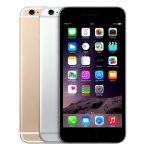
Most consumers who buy one of Apple's latest smartphones end up with the smaller model. In fact, iPhone 6 is outselling its bigger brother, iPhone 6 Plus, by a ratio of three to one in US, and an even higher ratio of four to one in Britain. However, Apple shouldn't be worried that its first phablet is nowhere near as popular as the "standard" iPhone 6.
That is because iPhone 6 Plus is actually a hugely popular device in its category, accounting for 41 percent of phablet sales in US in the three months ending October 2014, despite being on sale only from mid-September onwards. What does that mean in the grand scheme of things?
iPhone 6 is a huge hit

Apple will have a record quarter for iPhone sales, if analyst estimates are to be believed. The company is expected to ship more than 70 million units in the last part of the year, nearly 20 million units more than the 51 million units it moved a year ago. It wouldn't surprise anyone if these estimates turn out to be accurate, considering the successful launch of iPhone 6 and iPhone 6 Plus, coupled with the high consumer demand for the two devices across the globe.
Today, research firm Kantar Worldpanel ComTech adds more credence to the estimates. Its latest report, on the three months ending October 2014, reveals record market share for Apple's smartphones in Britain, strong performance in continental Europe, and marginal improvements in market share in US and China.
Recent Headlines
BetaNews, your source for breaking tech news, reviews, and in-depth reporting since 1998.
© 1998-2025 BetaNews, Inc. All Rights Reserved. About Us - Privacy Policy - Cookie Policy - Sitemap.